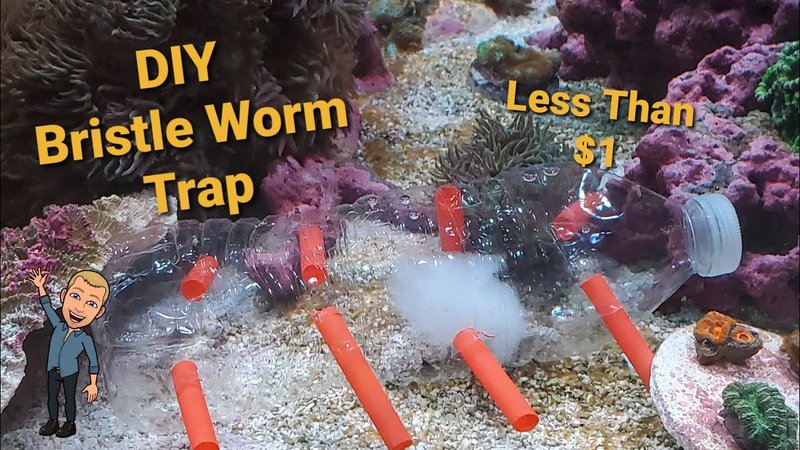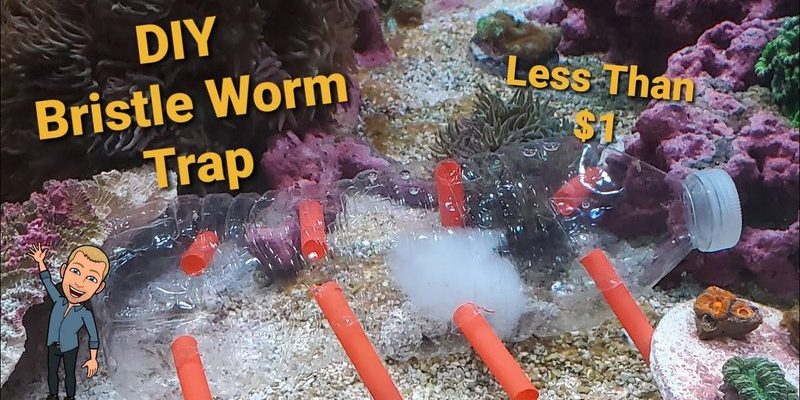
Understanding these worms is crucial before you set out on your trapping mission. Hammerhead worms, or *Bipalium kewense*, are exotic, predatory flatworms that can harm your local ecosystem. They feast on earthworms, which are essential for soil health. Think of it like an unwanted guest at a dinner party who eats all the food; you need a solid plan to keep them from overstaying their welcome. So, how do you tackle this problem? Let’s break down some clever traps and baits to help you reclaim your garden.
Understanding Hammerhead Worm Behavior
Before you start crafting traps, it’s helpful to know a bit about hammerhead worms. These creatures are nocturnal, which means they’re most active at night. They’re often found hiding in damp, dark places during the day, like under rocks or leaves. This behavior gives you a clue about when and how to set your traps effectively.
You might be wondering what makes them tick. Hammerhead worms are attracted to moist environments. They thrive in areas with rich organic material, such as gardens or compost piles. Think of your garden as a buffet for these worms, where they can feast on your earthworms and plants. By understanding their habits, you’ll know exactly how to direct your trapping efforts.
Another thing to know is that hammerhead worms can regenerate. So, even if you manage to capture one, there’s a chance it could still survive if not handled properly. This is why setting effective traps is critical to fully eliminate their presence in your space. You definitely want to avoid a sequel to this unwelcome invasion!
Building DIY Traps for Hammerhead Worms
Now that you have a solid understanding of their behavior, let’s talk about how to trap them. There are a variety of DIY traps you can make with items you probably already have at home.
- Plastic Container Trap: Take an empty plastic container and cut the top off. Bury it in the ground so the rim is level with the soil. Add a bit of water and some organic matter, like vegetable scraps, to attract the worms. They’ll crawl in and won’t be able to escape.
- Bottle Trap: A cut plastic bottle works similarly. Invert the top back into the base, creating a funnel. Place the trap in a shaded area of your garden, adding something attractive like leftover fish or meat to lure them in.
- Cardboard Trap: Wet some cardboard and lay it flat on the ground at night. The damp cardboard will attract the worms. In the morning, simply pick it up and dispose of any worms that have gathered.
Let me explain how these traps work: worms are drawn to the smell of decaying organic matter or moisture. Once they enter these traps, the design prevents them from escaping, making it easier for you to collect and remove them.
Choosing the Right Bait for Your Traps
Selecting the right bait can be the key to your success. Since hammerhead worms are attracted to certain smells, using the right bait can amp up your trapping game.
- Vegetable Scraps: Items like rotting potatoes, lettuce, or carrots can be excellent at attracting these worms.
- Fish Remains: Leftover fish parts are particularly enticing. Just be cautious about the smell and where you place them!
- Meat Scraps: If you have some old meat that you can part with, this can work wonders too.
When setting your bait, it’s best to place it in the traps just before dusk, when the worms are most active. Once again, think of it like setting a dinner table: you want to make it as inviting as possible.
Using Natural repellents
Aside from traps, you can also employ natural repellents to deter hammerhead worms from entering your garden in the first place. These methods are cost-effective and environmentally friendly!
- Salt Water: A simple solution of salt mixed with water can be sprayed on areas where you’ve spotted these worms. Just be careful around your plants, as too much salt can harm them, too.
- Citrus Peels: Hammerhead worms dislike citrus, so spreading lemon or orange peels around your garden can act as a repellent.
- Coffee Grounds: You might not realize it, but coffee grounds can also deter these worms. Spread them around your garden to create an unwelcoming environment.
Here’s the thing: these repellents won’t eliminate hammerhead worms completely but can help reduce their numbers. It’s a good strategy to combine these methods with traps for the best results.
Monitoring and Maintenance of Traps
Once you’ve set your traps, it’s essential to monitor them regularly. The last thing you want is to set a trap and forget about it! Check your traps every morning to see if you’ve caught any worms.
If you find some, be sure to dispose of them properly. You can place them in a sealed bag and throw them away, or if you have a friend who’s brave, they can take them away far from your garden.
You might also want to reset your traps regularly to keep things fresh. Changing the bait or moving the traps slightly can make them more effective over time. Consistency is key when it comes to managing hammerhead worms.
When to Seek Professional Help
Even with DIY traps and baits, there might come a time when the hammerhead worm invasion feels overwhelming. Here’s what to consider: if you’ve tried multiple methods and still see these creatures crawling around, it might be time to call in the professionals.
Pest control experts can provide treatments that are more potent than home remedies. They’ll know how to target these worms without harming your garden or the environment. It’s worth considering if you’re feeling frustrated and outmatched by these squiggly invaders.
Ultimately, managing hammerhead worms requires a combination of traps, natural repellents, and possibly professional help. Keeping your garden healthy and worm-free is an ongoing process, but with the right tools and knowledge, you can tackle these unwanted guests effectively.
In conclusion, taking the DIY route for traps and baits against hammerhead worms can be fulfilling and effective. With a little creativity and persistence, you can reclaim your garden. Just remember to keep monitoring your traps and adjust your strategies as needed for the best chance of success. Happy gardening!

